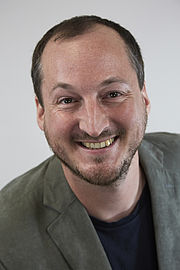We Help You Get Started With Digital Teaching
eLearning should not be seen as a competing alternative to existing teaching formats but rather as an opportunity for teachers and students as it provides enormous potential: With the right tools and and the correct application, eLearning makes teaching and learning more flexible and more effective.
A good and tailored concept is essential for using eLearning formats. Therefore, HGU's eLearning Team offers training courses, which focus on didactic aspects and the necessary technical know-how to create successful eLearning formats.
If no specific dates for the training courses are available, please click on the link below each training topic to access a poll in ILIAS.
Our Training Courses
Online Teaching with BBB
"Hello? Are you still there?“ - one major challenge of online seminars is to engage all students. Especially when the cameras are switched off, it feels like you are talking in front of a silent and anonymous group of people you cannot see. This workshop explains didactic concepts that help you plan and host online seminars.
The workshop focuses on:
- tools (BBB & Greenlight)
- didactic concepts of synchronous teaching
- how to engage all students
- group assessments and presentations
Speakers: Viktoria Günter & André Beem
Where: digital workshop
When: by arrangement
Registration: please click here.
Introduction to ILIAS
ILIAS is HGU’s digital learning platform. The range of functions takes up all latest developments in the field of eLearning. However, you need to know which functions these are and where to find them in ILIAS. This workshop helps you get started in ILIAS and shows the basics for creating your own eLearning projects.
Content:
- Login and navigation
- Structure of ILIAS
- Overview of functions/objects
- Creating objects
- Rights and roles in ILIAS
- Adding participants
Speaker: André Beem
Where: digital workshop
When: by arrangement
Registration: Please click here.
ILIAS for Advanced Users
Our digital learning platform ILIAS is a learning management system that offers a wide range of functions. From course organization to communication in chats and forums to tools that support the learning process such as exercises – there are almost no limits to the digital design of classes. This workshop introduces the functions that go beyond the mere distribution of learning materials. In the run-up to the workshop, we will identify areas of interest in order to tailor the workshop to your specific needs.
Content:
- Course organization (organizing students in small groups, assigning tasks, collecting data, etc.)
- Communication (forum, chat, feedback, etc.)
- Alternative types of assessments (ePortfolio, excercises, electronic submission, etc.)
- Evaluation (surveys etc.)
- Other
Speaker: André Beem
Where: digital workshop
When: by arrangement
Registration: please click here.
Feedback - Key to Success
Teaching and studying are all about interaction - no matter if you have a digital format or a traditional face-to-face class. In an online test, for instance, a "right" or "wrong" window that pops up after you have answered a question is the easiest kind of feedback. However, it does not promote the learning progress sustainably.
This workshop is divided into two parts: The first part deals with the importance of feedback from a theoretical and didactic point of view, the second part provides some practical examples how to give and receive feedback in ILIAS.
Content:
- Importance of feedback from a didactic point of view
- Feedback rules
- Implementation in ILIAS
Speaker: André Beem
Where: digital workshop
When: Thursday, July 22, 2021, 10 a.m. - 12 noon
Registration: please click here.
Basics of Didactics
“E-learning is very popular right now, that’s why we’re giving it a try, too.” – WRONG! E-learning is not an end it itself and can only be successful if it is flanked by a suitable didactic strategy. This workshop introduces didactic concepts that should be taken into account when planning and implementing e-learning strategies. Collect new didactic tools to create tailor-made e-learning projects.
Content:
- Blended Learning
- Constructive Alignment
- Learning objectives
- Feedback
Speaker: André Beem
Where: digital workshop
When: by arrangement
Registration: please click here.
Assessments with ILIAS
Teaching and testing are closely interlinked. As a teacher, you have many different options to make your classes and assessments more individual. ILIAS alone offers 16 different question types that can be used in exams. Depending on your didactic objective – e.g. if you are putting together a final exam or a playful quiz to check the learning progress – you may also change the design of the assessment. This workshop introduces the various options for e-assessments that can be found in ILIAS.
Content:
- Question types in ILIAS
- E-exams in line with legal requirements
- Tests to monitor the learning progress
Speaker: André Beem
Where: digital workshop
When: by arrangement
Registration: please click here.
From Learning Objectives to Exam Questions
At the end of a class, students usually have to sit an exam or take a test for which they receive a grade. For most students, these grades are essential for their study progress, which is why they focus on achieving the best possible grade instead of expanding their competencies. This workshop shows how to define learning objects that can be easily assessed in exams and how these learning objectives are turned into exam questions that challenge students to acquire new competencies instead of focusing on short-term learning effects.
Content:
- Exam purposes
- Constructive alignment
- Learning objectives
- Effects of exam settings
- Designing exam questions
Speaker: André Beem
Where: digital
When: by arrangement
Registration: please click here.
Useful Links
General Information (in German)
Handouts (in German)
Synchrone oder asynchrone Lehre Online-Seminare didaktisch ansprechend durchführen BBB: Leitfaden BBB-StudIP (externer Link) BBB: Schnellstart BBB-StudIP (externer Link) StudIP: richtige Auswahl der Lizenzen ILIAS: Lehrveranstaltungen anlegen ILIAS: Videos ILIAS: SCORM-Module erstellen und in ILIAS einbinden Pexip-Videokonferenzen Adobe Connect: Webinare durchführen Powerpoint mit Audio-Kommentaren Bildschirmaufzeichnung mit Screencast-O-Matic Vorlesungs-Podcasts mit BordmittelnContact



